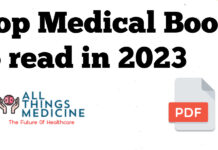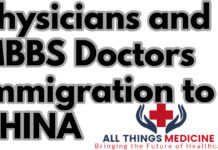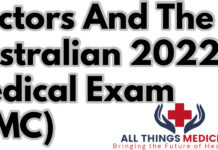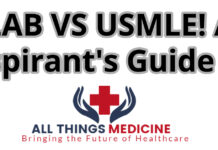Page Contents
Ever wanted to know what your chances are at getting into a residency program in the USA? Australia? or Canada? well, I wanted to know too. What you are about to read is a very worked upon compilation of the factors I could find to try to explain the possibilities regarding these possibilities. This is a kind of comparison for those who ask “Which one is the easier and which one is not?”. Before we get on with it know that all the abbreviations used have a link either on them or is mentioned at the end of the article so just click on them to know more.
USMLE and USA
USMLE (the United States Medical Licensing Exam) as we know is one of the most popular and talked about pathway among IMGs around the world. I myself plan on taking this way. Though it is also the toughest of all the medical exams around the world it is fruitful.
Educational Commission for Foreign Medical Graduates (ECFMG) reports for the year 2017 will provide us with an overview of success in this field. The 15th consecutive time according to the National Resident Matching Program (NRMP) Main Residency Match has increased for First-year (PGY-1) postgraduates i.e post-graduates in their first year of training. A total of 28,849 positions were offered in 2017 match, of the 12,355 IMGs who stood up or participated for the positions only 6,591 matched (53.3%). By the word match or matched we mean acquired a residency in the program.
Of these 12,355. 7,284 were non-U.S. citizens and only 3,814 of these obtained first-year training positions (matched) in the U.S. The other 5,069 were U.S citizen IMG participants and only 2,777 got matched for first-year positions.
The procedure for US matching is the annual NRMP. This system matches applicants with available residency positions in the U.S graduate medical education programs (GME). Candidates submit a list of residency programs to the NRMP in order of preference and then the matching is done on a computer-based algorithm. The match results are announced in March of each year.
If you look at the results you would clearly see that there is almost 50 success rate for U.S residency but keep in mind those who participate have already passed the USMLE exams and that exam itself is a giant to be beaten. know more about it here.
Let us talk about Australia

AMC and Australia
The AMC as we know again is one of the most popular ways for IMGs to get to Australia and practice medicine. Though there are other ways you can get there, know all about them HERE.
The AMC exam like USMLE has parts, All of which have to be passed first before we get to talk about the residency. To break the test results down (2017) for you in seconds
- 2,663 appeared in the MCQ examination and only 1,559 passed it. 1903 of them appeared for the first time.
- 2,165 appeared for the clinical examination and only 597 passed and qualified for the AMC certificate. 1,026 appeared for the first time.
- 100 appeared for the workplace based examination and 95 passed.
After all this, it still seems impossible. You have to have at least 1 year experience in a hospital (Australian or Western country, they do not care much about Indian or Pakistan hospital experience) before they even consider you for residency. Their priorities depend on the area of the country. The more rural and under-developed hospitals you apply for, the more chances of your acceptance. Even then always their first priority is their own Australian medical graduates. For instance, I know of a person who wanted to get into OBS/GYNAE. It took them 5 years before they got into a residency in this program. More than 1000 IMGs roam jobless in Australia still more waiting to get into residency. The highest chance for you to get there is to study in an Australian medical school, and that chance, too, is not a big one.
Know more about all the Pathways for IMGs to Australia.
MCC Exams and Canada
Canada too like Australia and the USA is a dreamland for IMGs. The Canadian system resembles the American system much when it comes to medical residencies.
Statistically talking, Around 3000 Canadian medical graduates apply for residency positions and almost all get matched but every year there is an increase in unmatching too
- 11 remained unmatched in 2009
- 68 remained unmatched in 2017
So you can say the increase is not very significant, but, did you notice the part where I said this is for Canadian medical school graduates? Yeah, let me throw it at you
IMGs or non-Canadian medical school graduates around the whole world are offered only around 300-400 residencies each year. Imagine the number who apply? must be around 2000. even of those only 300 are selected or matched. This must tell you that Canada is one of the most impossible of destinations for an IMG but then again you never know for sure you might be one of those 300-400. After Passing all your MCC exams (except MCCQE part 2), NAC-OSCE and IELTS. You become eligible to apply for a residency program through Canadian Residency Matching Services (CaRMS). Know more about the Pathways you can take to get a residency in Canada HERE. Else than that a point of interest that might help you is that the First choice of program of IMGs for Canadian residency is Internal medicine and the last is Dermatology.
This PDF will provide you with the complete statistical data for the year 2018 of residencies matched and unmatched for CMGs (Canadian medical graduates), USMGs (US medical graduates), and IMGs (other International medical graduates).
The Takeaway
Still confused? You shouldn’t be. USMLE being the better option. Australia the second (even better if you are good with rural areas) and Canada the last (Probably impossible if you are an IMG but a golden egg if you are a CMG).
The results are as simple as that in my opinion. Some of the points I deem necessary to mention are described below haphazardly regarding Australian, American and Canadian residency dreams
- You have to waste around 2-4 years before getting into a residency in Australia and Canada. Not so much for the US
- Volunteer work and having connections in all three countries help a lot in landing a residency among IMGs.
- Work experience counts the most of the country you want residency in, after that the priority is the western experience.
- Accommodation and expenses are always a problem for those not wealthy enough so please consider that before you even start to work for your dream, you have to have big pockets and bigger a patience.
- Best of luck is all I would say else than this.
Have a look at all the articles mentioned below for you to have a deep understanding of all these countries, their exams, and their pathways to residencies.
- USMLE STEP 1 Details
- USMLE STEP 2 Details
- AMC Details
- MCCEE Details
- MCCQE PART 1 Details
- MCCQE PART 2 Details
- AMC Pathways For IMGs
- Pathways for IMGs to Canada

Hope this article provided you with a choice to pick. All of them have their own perks and downs, follow your dreams but know the hard-work for it. leave your queries in the comments below. Thankyou














Hi Thanks for your article, found it really helpful. I have one question regarding the australian workplace based evaluation, why is it only 100 people appeared for it while around 500 people passed amc clinical exam?
The work-place based assessment is an alternative to the AMC examination. Some healthcare faculties in Australia test their candidates through this way before they provide them with the job. This work-place based assessment is taken by AMC faculty members but it is not the real AMC examination, it is different. Workplace-based assessment of your performance in everyday clinical practice in the Australian healthcare setting tracks your progress in integrating clinical knowledge and skills as a basis for safe and effective clinical judgments and decision making. It also assesses how well you deal with patients and whether you work productively in a team of healthcare professionals.
The content and the assessment standard of accredited workplace-based assessment programs are approved by the AMC and overseen by members of the AMC Board of Examiners, who ensure that the format and content of the assessments are consistent with the required standard.
It is a informative yet a little disappointing but of course reality should be kept in mind. as you seem quiet practical in knowing the ground realities any idea about doing mph or bachlers in hospital management and what about doing job along with. Thanx
Do not be disappointed by any of it. This field of medicine can never disappoint you, You will study for your exams and that study will always help you in practical life wherever you go. Follow your dream, It may take some time but you may eventually get there. Even after that, there are many other countries that await you. Sorry, Dr Summaya I do not have info regarding MPH or Bachelors in Hospital management but I may do some research on it and write an article someday.
So does this mean you might not write AMC exam if you go through the workplace based assessment. If that’s a Yes, how do one go by this? Thanks for the info
Yes, you do not have to go through the AMC exam. The procedure is well you have to ask the specific healthcare facility you wish to get a job at, they will decide whether or not they take the workplace based exam and are you eligible for it.
How do one go by the workplace based assessment? AMC exam won’t be necessary again?
Yes, Unless you wish to work in another healthcare facility (Hospital). As they might assess you through the workplace based assessment or may require you to pass AMC